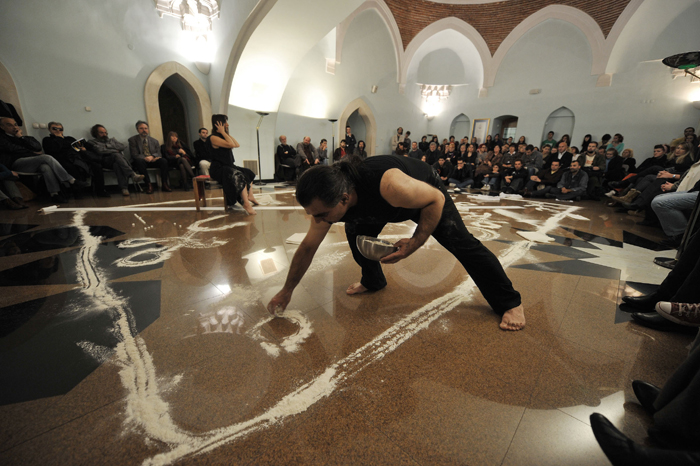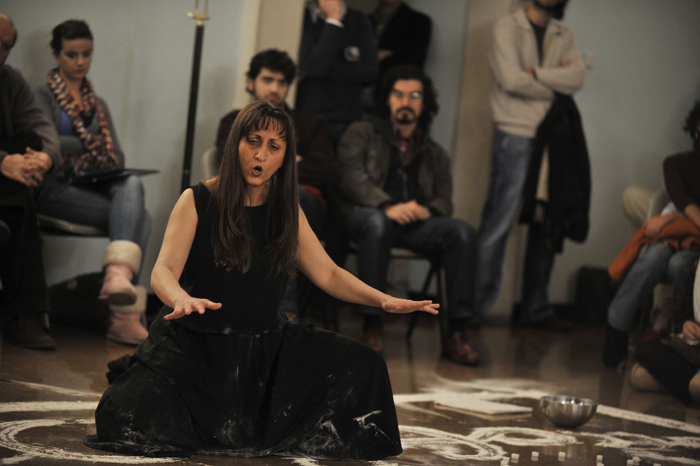Press Conference and Critical Round Table "no shadow"
At MESS international Theatre Festival 16-26 October 2009

(…), we were also introduced to the acting and directing couple of Shamal Amin and Nigar Hasib, émigrés from Kurdistan who have worked as artists in Austria for many years. They have worked together since 1989, and ten years ago, developed the idea of establishing a laboratory that would be primarily focused on exploring human voice as an “intensely powerful instrument”.
As the laboratory’s chief researcher, Shamal pointed out that the process of staging a narrative also involves staging the body, the voice, the physical setting up of the stage, as well as staging human life, and that these are the starting points for the discovery of one’s own and entirely new contexts. After a lot of exploration, both artists decided they wanted to work with the human voice in its artistic, cultural, anthropological and aesthetical contexts, making them their starting point.

The cast of this research project were also the guests of the critical round table held in the same venue at 12.00, where discussants posited the same questions about the idea and concept behind the work of the Lalish Theater Labor research centre. Apart from the assumptions that were clarified earlier at the press conference, the round table moderator Bojan Munjin concluded that this was “a research theatre of speech and movement, in a form that is defined by theatre theory as ritual theatre”. The researchers then also spoke about a philosophical and cultural phenomenon of the twentieth century, which brought back into focus the idea of exploring the body and all it can do, “which led to neglecting the voice”. Shamal also mentioned that “voice today is used as a transport mechanism to send a message”. For them, voice is not just a form of “transport” - it above all represents life, because “human sounds have their own history, their own memory”. For that reason, their theatre tries to “spiritualise” this voice on stage.
Shamal and Hasib also pointed out the need for the audience to feel the message and their vocal performance, and to spend less time on interpreting it.In response to the question of the audience about what the actors feel on stage when they explore what they call tone, Nigar repeated her idea of the research project as not being finished, because with every new performance in a new surrounding, with its open social and cultural contexts, the actors can hear and feel new tones that become a part of their performance. As one participant of the round table remarked, and to which Nigar Hasib agreed, voice does have a therapeutic power.
